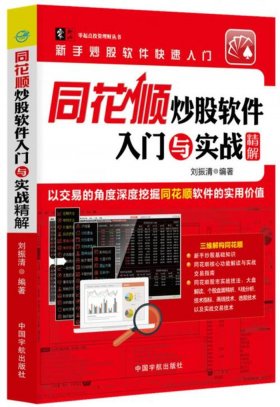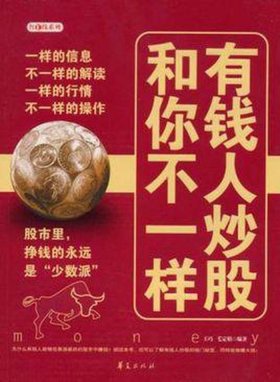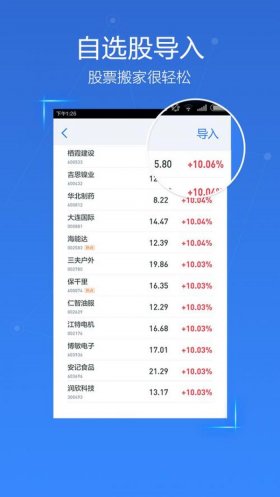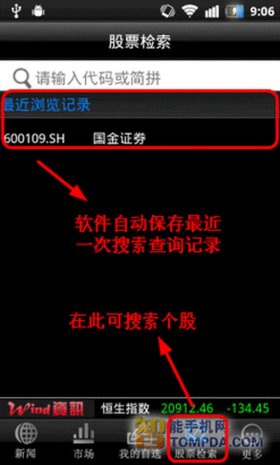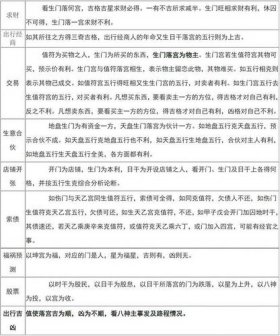英语-星期三(san)用英语怎么读(星期三用英语怎么读语音)
-
英语

- 股票知识-飞升股票学习网
- 2023-12-22 13:30
- 飞升股票学习网
英语-星期三(san)用英语怎么读(星期三用英语怎么读语音) ,对于想学习炒股的朋友们来说,英语-星期三(san)用英语怎么读(星期三用英语怎么读语音)是一个非常想了解的问题,下面小编就带领大家看看这个问题。
原文标题:星期三(san)用英语怎么读(星期三用英语怎么读语音)
英语-星期三(san)用英语怎么读(星期三用英语怎么读语音)
一.学习用(yong)品(school things)
钢笔pen铅(qian)笔pencil铅笔盒pencil-case尺子ruler书(shu)book书包schoolbag漫画书comic book明信片postcard报纸newspaper包bag橡皮eraser蜡笔crayon 卷笔(bi)刀sharpener 故(gu)事书story-book笔记(ji)本notebook 语文书Chinese book英(ying)语书English book数学书math book杂志(zhi)magazine词典(dian)dictionary
二.人体(body)
脚foot头head脸face头(tou)发hair鼻子nose嘴mouth眼睛eye耳朵ear手臂arm手hand手指hand腿leg尾(wei)巴tail身体(ti)body
三.颜色(color)
红(hong)red 蓝blue 黄yellow 绿green 白white 黑black 粉红pink 紫purple 橙orange 棕(zong)brown 灰grey
四.动物(animals)
猫cat 狗dog 猪pig 鸭duck 兔rabbit马horse 大象elephant蚂蚁ant鱼fish鹰eagle鹿deer 海狸beaver 鸟bird蛇snake 老鼠mouse 松鼠squirrel熊bear 袋鼠kangaroo 猴monkey 熊猫panda 狮子lion老虎tiger 狐狸(li)fox斑马zebra长颈鹿(lu)giraffe鹅(e)goose母鸡(ji)hen火鸡turkey小羊lamb绵羊sheep山羊goat奶牛cow驴donkey鱿鱼squid龙虾lobster鲨鱼shark 海豹seal抹香
鲸sperm whale虎鲸killer whale
五.人物(people)
朋友friend男孩boy女孩girl母(mu)亲mother父亲father 姐妹sister兄弟brother叔(shu)叔;舅舅uncle男人man女人woman先生Mr.小姐Miss女(nu)士lady妈妈mom爸爸dad父母parents(外)祖母grandma/grandmother(外)祖父grandpa/grandfather姑姑(gu)aunt儿子son婴儿baby堂(表(biao))兄弟;堂(表)姐(jie)妹cousin小孩kid同学classmate 女王queen参观(guan)者visitor邻居neighbors校长principal 大学生university student笔友(you)pen pal旅行者tourist人物people机器人robot
六. 职业(jobs)
教师(shi)teacher学(xue)生student医生(sheng)doctor护士nurse司机driver 农民farmer 歌(ge)唱家singer(男)警察policeman作家writer男演员actor女演员actress画(hua)家artist电视(shi)台记者TV reporter工程(cheng)师engineer会(hui)计accountant销售员salesperson清洁工cleaner棒球运(yun)动员baseball player售(shou)货员assistant(女)警察policewoman
七.食品、饮料(food and drink)
米饭rice面包bread牛肉beef牛(niu)奶milk水water蛋egg鱼fish豆腐(fu)tofu蛋糕cake热狗hot dog 猪肉pork汉堡包hamburger炸薯条French fries曲(qu)奇cookie饼干biscuit果酱jam面条noodle肉meat鸡肉chicken羊肉mutton蔬菜vegetable沙拉(la)salad汤soup冰(bing)ice冰激凌ice-cream可乐Coke果(guo)汁juice茶tea咖啡coffee早(zao)餐breakfast午餐lunch晚餐dinner
十八.星期( week )
星期(qi)一Monday 星期(qi)二Tuesday 星期三Wednesday 星期四Thursday 星期五Friday 星期六Saturday星期日Sunday周末weekend
十九.月份(months)
一月份January (Jan.) 二月份February(Feb.) 三月份March(Mar.)四月份April (Apr)五月份May (May)六月份June(Jun) 七月份July(Jul) 八月份August(Aug.) 九月份(fen)September(Sept.) 十(shi)月份October(Oct.) 十一(yi)月November(Nov.) 十二月December(Dec.)
二(er)十.季节( seasons )
春spring 夏summer 秋fall冬winter
二(er)十一.方位(directions)
南south北north东(dong)east西west左边left右边right
二十二.患病(illness)
发烧have a fever 疼痛hurt 感(gan)冒have a cold 牙疼have a toothache 头疼(teng)have a
股票知识 纪录片
headache 喉咙疼have a sore throat二十五.介词(prep.)
在…里in 在…上;在…时(shi)候on 在…下面under 在…的旁边near 在(zai)…后边behind 与…相邻next to 在…上面over 在…前面in front of
二十六.代词( pron. )
我I 他he 她she 它it
我们we 你;你们you 他(她,它)们they
我的my 我们的our 你的;你们的(de)your 他的his 她的her
二十七(qi).动词( v. )
进行体育运(yun)动play sports玩(wan);踢play打(da)架fight 游泳swim滑冰(bing)skate爬山climb mountains放风筝fly kites跳舞dance唱歌sing画(hua)画draw弹钢琴play the piano晨练;做广播操do morning exercises去远足go hiking堆雪(xue)人make a snowman植(zhi)树plant trees pictures浇(jiao)花water the flowers 照相take pictures 听音乐listen to music绘(hui)画paint去旅行take a trip阅读(du)杂志read a magazine集(ji)邮collect stamps下棋(qi)play chess驾驶drive
飞(fei)fly跳jump走(zou)walk看look跑(pao)run爬climb荡swing划row踢kick骑ride停stop等wa
炒股票基础知识下载
it爱love尝taste闻smell剪(jian)shear放put折fold寄send买buy 卖sell 逛商店(dian)go shopping 吃eat 喝drink 有;吃have 像;喜欢like 帮助help
股票装b知识
转弯turn 居住live 带take 教teach 去go 挤奶milk 猜guess 反弹bounce回家go home 做家务do housework 睡(shui)觉sleep 上床睡觉go to bed 铺床make the bed 起床get up醒来wake up穿(chuan)上put on脱掉(diao)take off挂起hang up穿wear
洗 wash洗(xi)衣服wash the clothes 喝水drink water 洗碗do the dishes 打扫clean 扫地sweep the floor 打扫卧室clean the bedroom打扫房间clean the room倒垃圾empty the trash收(shou)拾衣服put away the clothes
摆(bai)饭桌set the table做饭cook the meals 做晚饭cook dinner吃早饭eat breakfast 吃晚饭(fan)eat dinner
上学go to school上(shang)英语课have English class做作业do homework学习learn写信write a letter读书books看书read a book 写电子邮(you)件write an e-mail 观察昆虫watch insects 读read com 写write 看电视watch TV去看电影go to the cinema 思考think 使用计(ji)算机use the computer 玩电脑游戏play computers
工作work 接电话answer the phone 看(kan)望(外)祖父母visit my grandparents 研究study
见面meet欢(huan)迎welcome谢谢(xie)thank喂养feed传递pass展示show使用use打开open 关上close告诉tell寻找find照耀shine变成become感觉到feel 遇见meet 落下fall离开leave下(xia)车get off
二十八.疑问(wen)词
what(什(shi)么) when(什么(me)时候) why(为什么) what color(什么颜(yan)色) what time(几点)
what day(星期几) how old(年龄多(duo)大,几岁) how(怎样)
how many(多少) how much (多少钱)
how tall (多高) how heavy(多重(zhong)) how long(多长) how big(多大) how large(面积多大)
where(在哪里) which(哪一(yi)个)who(谁) whose (谁的)
二十九.be动词
am is are was were
三十.助动词
do does did
英语-星期三(san)用英语怎么读(星期三用英语怎么读语音)
三十一.情态动词
can should would will
I don't know what to do.
I don't know what to do. (该怎么(me)办呢?)
Don't worry, I'll help. (别担心,我来帮你。)
I'm at a loss as to what to do. (我真不知该怎么办(ban)才好。)
I'm unable to decide for myself. (我一个人决定不(bu)了。)
What shall I do? (怎么办?)
我该怎么办?
What am I supposed to do? *be supposed to “计划做……”。
What am I supposed to do? (我该怎么办?)
I don't know. Just relax, I'll help you. (我也不知道。放松点儿,我会帮助(zhu)你的。)
What am I going to do?
What should I do?
这下可麻烦了。
We are in trouble.
We can't finish our proposal in time. (我(wo)们不能按时完成计划了(le)。)
We are in trouble. (这下可麻烦(fan)了。)
We're in big trouble. *进一步强调不知如(ru)何是好的心情。
那很麻烦。
It's a hassle. *hassle “麻烦(fan)的事情,苦战”。
Do you like the new computer system? (你喜欢(huan)这种新计算机系统吗?)
No, it's a hassle. (不喜欢(huan),它很费劲。)
It's a pain in the neck.
It's a pain in the ass. *低俗的说法。
It's a lot of trouble.
这真是个难题。
It's really a difficult problem.
What should we do? (我们该怎么办?)
I don't know. It's really a difficult problem. (我不(bu)知道。这真是个难(nan)题。)
It's big problem.
我不知道(dao)说什么才好。
I don't know what to say.
I'm at a loss as to what to say. (我不知道说(shuo)什么才好。) *at a loss “困(kun)惑不解,茫然不知所措”。
这下可难住我了。
You got me.
I have a full house. (〈打牌中的(de)〉我是同花顺。)
You got me. (这下可难住我了。)
I don't know.
I guess you're right. (我想你是对的。)
You win. (你赢了。)
That beats me.
他特(te)招人讨厌。
He's a nuisance. *nuisance“难(nan)对付的人,麻烦的人”。
自作自受。
You asked for it. *“自己给自己找麻(ma)烦”。
哎哟!
Oops! *表示困(kun)惑、遗憾的心情,或吃惊(jing)和轻度欢喜。
You're stepping on my foot. (你踩着(zhe)我脚呢。)
Oops! I'm sorry. (哎哟!对不起。)
I made a mistake. (我犯了一个(ge)错。)
My mistake. (是我的错。)
噢!不!
Oh, no!
Oh, no! I missed the flight. (噢!不!赶不上飞机了。)
You did? (真的?)
Ah, man! *man 表示兴奋(fen)的和吃惊的口语说法。
Oh, my goodness!
Oh, my gosh!
Good heavens!
这正是难点。
That's the hard part.
We have to decide what to do. (我们得决定什么做。)
That's the hard part. (这正是难点(dian)。)
That's the difficult part.
我感到内疚。
I feel guilty. *有罪恶感(gan)。
I feel guilty. I was mean. (我太刻薄(bao)了,我感到很内(nei)疚。)
Don't worry about it. (不(bu)必为那事担心了。)
I feel bad about it. *虽然很在意,但还不(bu)致于有罪恶感。
I feel horrible.
It's all my fault. (都是我不好。)
I feel terrible.
你看(kan)来很困惑。
英语-星期三(san)用英语怎么读(星期三用英语怎么读语音)
You look puzzled. *puzzle “使……窘困”、“使……糊涂”。
You look puzzled. (你看来很困惑。)
I can't understand this machine. (我弄不明白这台机(ji)器。)
You look confused. (你看上去很困惑。)
那个念(nian)头总是萦绕着我。
The idea haunts me. *haunt “不断缠绕(rao)在心头的”、“萦绕在脑海(hai)中的”、“使心烦的”。
I can't get rid of the idea.
I can't get it out of my mind.
英语-星期三(san)用英语怎么读(星期三用英语怎么读语音)
原文出处:http://www.vitai-group.cn/gshq/1683505495838.html
以上是关于英语-星期三(san)用英语怎么读(星期三用英语怎么读语音)的介绍,希望对想了解炒股知识的朋友们有所帮助。
本文标题:英语-星期三(san)用英语怎么读(星期三用英语怎么读语音);本文链接:http://ywyongle.com/gupiaozhishi/52407.html。
猜你喜欢
- 线上教育培训机构十大排名、线上英语哪家口碑最好 2024-01-30
- 1到12月份的英语单词及缩写;英文缩写 2024-01-02
- 13的英文,13 用英语怎么说 2024-01-02
- 英语-maybe是什么意思英语(maybe什么意思英文) 2023-12-25
- 英语-朵拉的英文名(ming)(朵拉的英文名怎么写) 2023-12-25
- realize是什么(me)意思(realize是什么意思英语) 2023-12-25
- 英语-sing是什么(me)意思网络用语(sing是什么意思网络用语我用英语怎么回复他) 2023-12-24
- mine英(ying)语怎么读(mine英语怎么读语音翻译) 2023-12-24
- 英语-together什么意思英语的简单介绍 2023-12-24
- 英语-rsvp怎么读(请赐复英文rsvp怎么读) 2023-12-23
